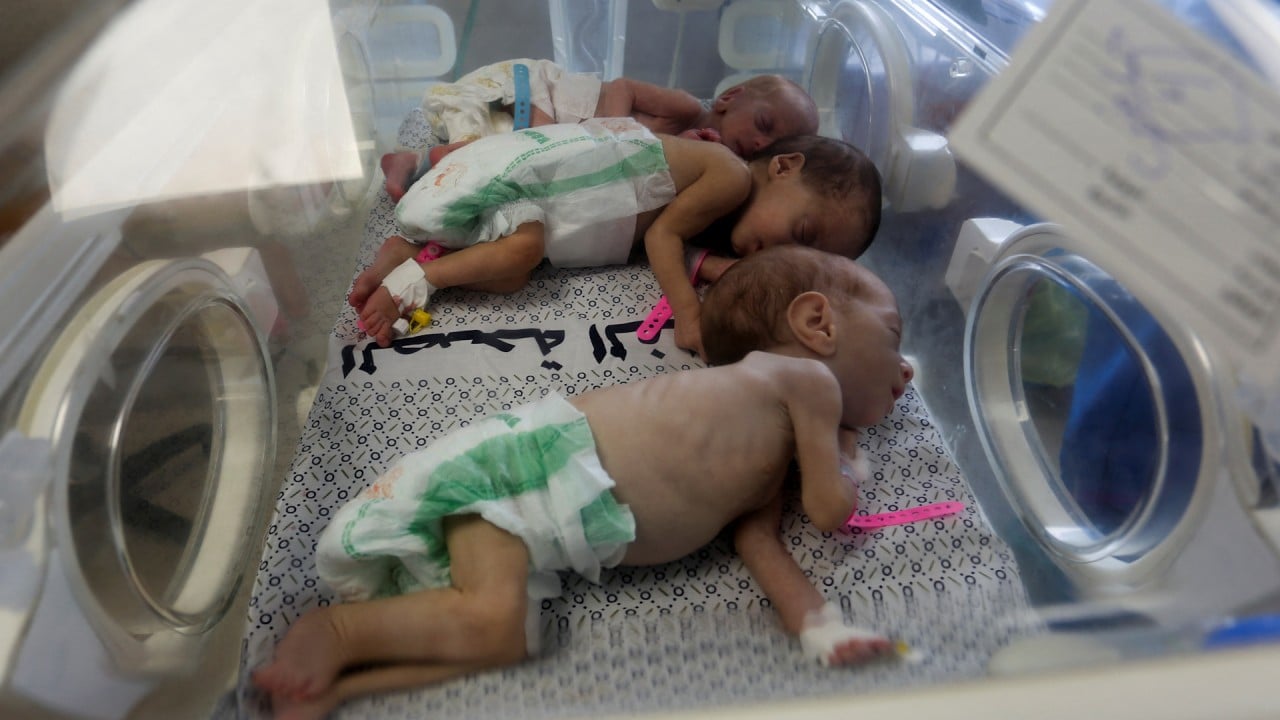
Israel-Gaza war: peace can only be achieved if we all pull together
- As popular support grows for the Israeli bombardment to stop, the US finds itself increasingly isolated, even at odds with traditional allies that support a Gaza ceasefire
- Like the children’s story Pulling the Radish, if the world acts as one, a solution can be found to the crisis that brings lasting peace
I am a mother; my son is 20 months old. His favourite story at the moment is Pulling the Radish. There are many versions of this classic but the idea is the same: you can’t pull it up by yourself. You can only succeed with help. Unity brings more strength.
I can’t help but associate it with the world we live in. There are simple truths told plainly in children’s stories. We want our children to hold on to those truths, but as adults, we seem to have left them behind.
I could barely watch the news of the displaced and all the civilian deaths, especially of babies. Since I became a mother, any bad news about children makes me extremely uncomfortable. I wish only to see children, no matter where they are, grow up in love and peace with abundant choices of food, toys; everything.
Numbness. It’s a word that also aptly describes the attitudes of many in the world outside the miserable reality of that land. I grew up with news of Israeli-Palestinian conflicts, which never seemed to be absent from international news coverage. Somehow, it faded into the background of daily life. People got used to it.
But it seems different this time. Israel’s latest military operation in Gaza sits among the deadliest and most destructive in recent history. The international community’s calls for a ceasefire grow stronger. Everybody knows how to ease the humanitarian crisis – stop the attacks and let the aid in.
The resolution is a result of compromise. Although it lacks unanimous support for an immediate pause to the fighting, I’d still like to consider it a step forward, a glimmer of hope, as the US abstained instead of vetoing for a third time.
During the voting process, there was a dramatic scene. The US representative to the United Nations, Linda Thomas-Greenfield, initially raised her hand in favour of the resolution but was immediately nudged by a staff member behind her. She lowered her hand and raised it later for the abstention.
I’d like to believe it was an instinct that caused her to raise her hand to support the resolution. Maybe at that moment, she followed her heart, not her head.
The international community should speak with one voice for a commitment to the two-state solution – and back it with action.
Back to my son’s favourite story, Pulling the Radish. Among the different versions, I like this one the most: a little rabbit finds a radish that’s too big to pull out. It asks other animals for help. Along comes a bear, strong and arrogant.
The bear thought it would be easy to pull the radish out all by itself, so it dismissed the other animals and started to pull. But the bear failed. The animals driven away came back and, together, they succeeded in pulling the radish out.
If sustainable peace between the Israelis and Palestinians is the radish, then although there is a bear making the process more complicated than it needs to be, I still believe that, with a united effort, the radish can be got. After all, that is the plain truth every child knows: unity brings more strength.
Wei Wei is the former chief correspondent of the Eurasian bureau based in Moscow of China Central Television

.JPG?itok=dEZdZ2Hn&v=1694149505)
